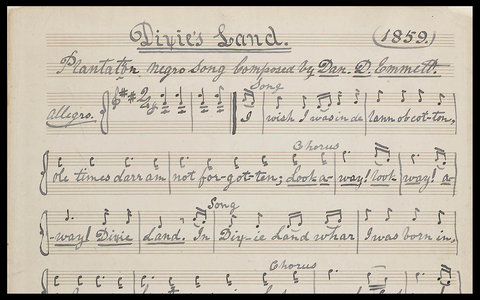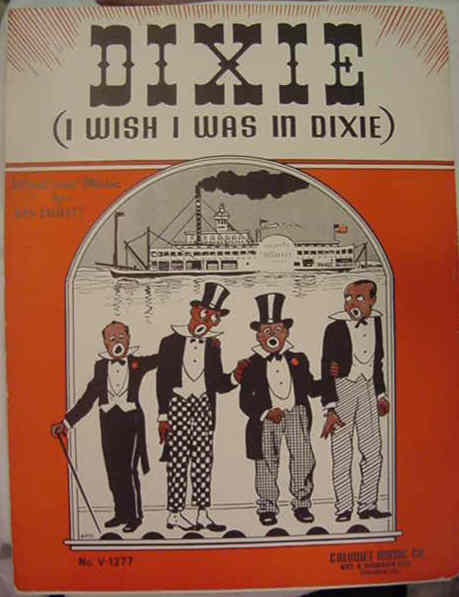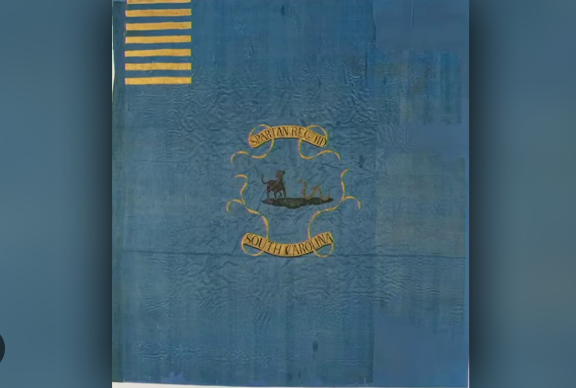The history of Dixie is as messy as it is long: a southern folk song that was claimed to be written by an Ohioan, as well as a favorite tune of Abraham Lincoln that was later claimed as a spoil of war.
‘Dixie,’ used both to celebrate and indict the south, was described by Dr. Coleman Hutchison as “malleable and persistently relevant in American cultural life.”
Hutchison, an associate professor of English at the University of Texas at Austin, is currently working on a popular biography of Dixie, which seeks to tell “the story of how a song gave the South a nickname, and how that nickname has shaped the South’s cultural identity.”
About ten minutes into his lecture about the southern folk song Dixie, Hutchison showed a clip from the “Unite the Right” rally that took place in Charlottesville, VA last August. On the screen, white nationalists sung Dixie with tiki torches in hand.
“I wish I was in the land of cotton, old times there are not forgotten. Look away, look away, look away, Dixie Land,” sung the participants in the video.
Once the song ended, the participants in Charlottesville switched to chanting ‘You will not replace us!’
“I think it’s good for UGA to have events where we get to think about the history of southern culture, and the complicated nature of southern identity.”
– Dr. Cody Marrs, UGA associate professor of English
This recent use of the song was another in a long series of political and cultural references featuring it. With its origin in 19th century minstrel shows, Dixie has been used as a civil war song, as an anti-civil rights anthem and even as a marketing tool, Hutchison explained.
“Within weeks of its first performance on Broadway in 1859, Dixie’s problematic image of African-Americans longing for the plantation south became a metonym for the region,” Hutchison said.
Mapping Dixie over time, Hutchison delved into such cases as the poetry of Langston Hughes and the political history of ‘Dixiecrats’ to reflect on what the song has meant to white and black Americans.
The lecture at Park Hall was attended by about 30 people, consisting of students and professors. It was sponsored by the UGA English Department as part of the Ballew lecture series.
Dr. Cody Marrs, associate professor of English at the University of Georgia, helped organize this event. He thinks it is important to open conversations about the history and culture of the south.
“I think it’s good for UGA to have events where we get to think about the history of southern culture, and the complicated nature of southern identity,” Marrs said. “I thought we had a really good turnout and it seems like people were very interested in the topic, so I’m happy with how it all turned out.”
Hutchison closed his lecture by saying that after 150 years of use, the next generation of singers, writers, thinkers and protesters would determine the future role Dixie will play.
“Each new use quietly shifts the meaning of the overdetermined name,” Hutchison said.
—redandblack.com




